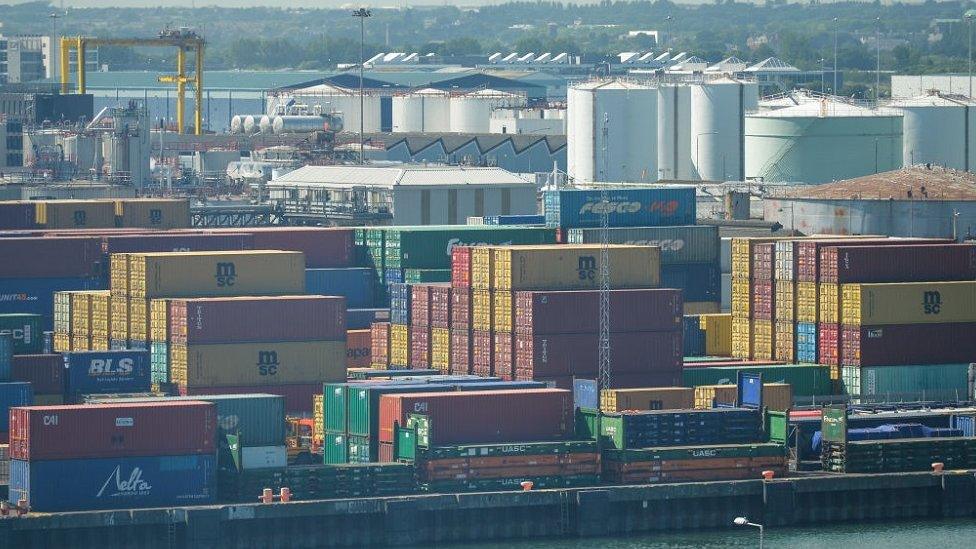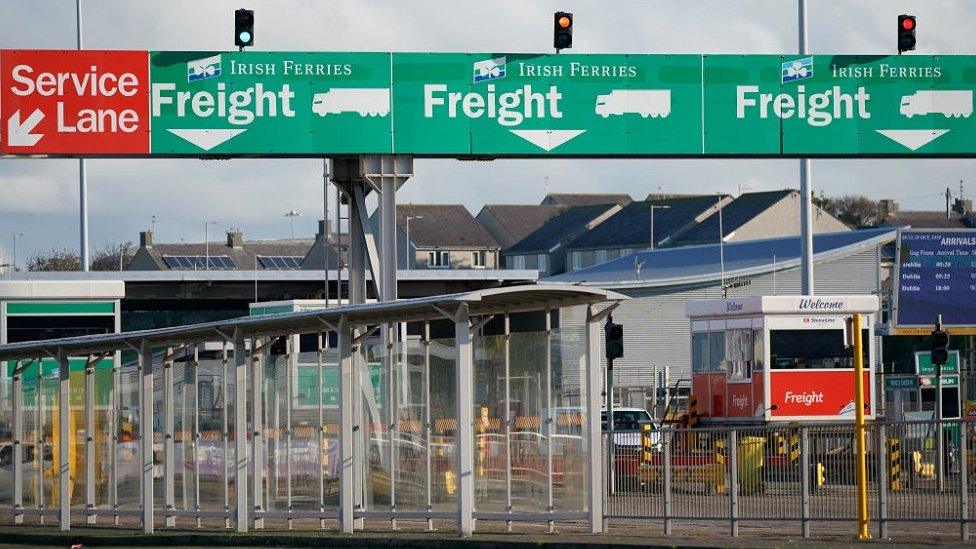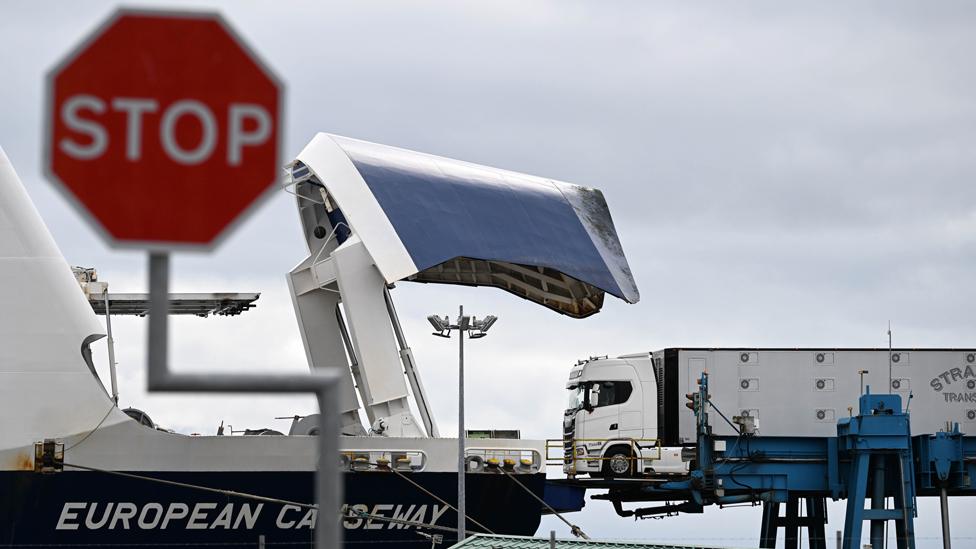Brexit: 'Holyhead green lane' plan for NI goods
- Published

The plan would see goods intended for NI pass through a 'green lane' at Dublin port
It is understood the UK government is considering ways to make it easier for NI traders to send goods to Britain via ports in the Republic of Ireland.
It could involve a 'green lane' arrangement for NI hauliers arriving at ports like Holyhead.
Dublin is an important port for NI-GB trade but sending goods this way has become more bureaucratic after Brexit.
Northern Ireland goods sent this way are effectively treated like an import rather than an internal UK sale.
Under the terms of the Northern Ireland Protocol and Windsor Framework Northern Ireland goods have unfettered access to Great Britain, but only if they are leaving via a port in Northern Ireland.
It has long been a complaint of some businesses, particularly hauliers, that the post-Brexit processes for shipping via Dublin mean that NI-GB trade is not truly unfettered.
The Dublin-Holyhead route is particularly important for Northern Ireland businesses sending time sensitive goods, like food, to the south of England.

Holyhead Ferry Port is one of the main routes between the Republic of Ireland and the UK
The government plan, which is in its early stages, would require new legislation.
It would mean Northern Ireland goods using a green lane having arrived from a Republic of Ireland port, meaning no checks and minimal paperwork.
Goods from the Republic of Ireland would use a red lane meaning they would be subject to UK customs processes and other checks.
It is unlikely that all paperwork for Northern Ireland goods using this route would be eliminated, for example, an Irish export declaration would still be required.
The context for the plan is a new date for the implementation of post-Brexit border processes at Great Britain ports.
These have been delayed on four occasions but the government said it will start to be rolled out from October when food and plants being imported from the EU will need to be certified.
Then, from the end of January 2024, these products will be subject to risk-based physical and paperwork checks.
'Avoiding burdens'
However, the government has suggested that checks on Republic of Ireland goods may start on a later date, with details to be clarified later this year.
Finally, a process known as a safety and security declaration will be required for EU imports from October 2024.
In its consultation document on the changes, external the government said: "Further to the Windsor Framework, we will ensure that Northern Ireland businesses have unfettered access when moving goods to their most important market in Great Britain.
"These arrangements will be enshrined and further strengthened in domestic legislation, avoiding burdens for Northern Irish goods on both direct Northern Ireland-GB and indirect Northern Ireland-Ireland-GB routes."
- Published2 February 2024

- Published28 February 2023

- Published11 March 2023
